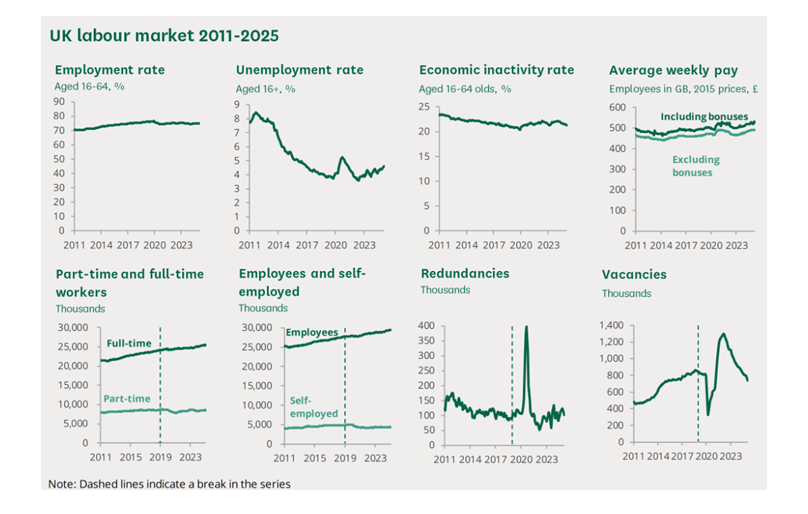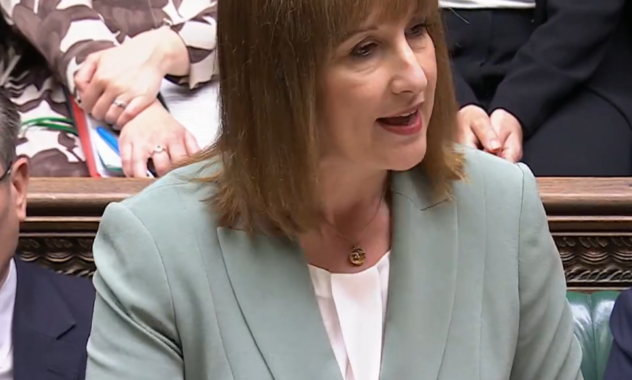Spending Review: fearmongering over employment rights misses the big picture, says expert
IER economic expert Oslem Onaran responds to the latest labour market data

According to the latest statistics, more than a quarter of a million jobs have been lost in Britain since the government’s autumn budget. Unemployment is now at the highest level in almost four years.
Figures from the HMRC show the number of workers on company payrolls fell by 109,000 in May – the largest monthly fall since the first Covid lockdown in 2020. In addition, data from the Office for National Statistics (ONS) showed that the UK’s official unemployment rate rose to 4.6% in the three months to April, up from 4.5% in the previous three-month period – the highest level since July 2021. The Trades Union Congress (TUC) added that:
- Payrolled employees for May 2025 decreased by 274,000 on the year
- Vacancies of 736,000 are now 59,000 below their position at the start of the pandemic
- Youth unemployment is 12.7%, up from 11.9% a year ago
On the latest labour market data, TUC General Secretary Paul Nowak said:
“The government inherited a country in urgent need of repair, and the Spending Review is a key moment in their plan to rebuild Britain and invest in growth. A stronger economy will deliver more secure jobs and new infrastructure spending can directly support employment and training.”
While there has been some suggestion from business quarters that the government’s Employment Rights Bill is making employers more cautious about taking on staff, and that it will dent business confidence , this has been strngly rebuked by supporters of the Bill.
In an interview with City AM, Minister for Employment Rights Justin Madders likened concerns about the Bill to fears over the introduction of the minimum wage.
A recent Institute of Directors (IoD) poll found that over a third of business owners would be looking to outsource roles abroad once the Bill is passed, and over half would invest in automating jobs. Madders suggested this polling has been influenced by “a lot of incorrect reporting around what this bill does.”
The IoD is on of a number of employers’ groups to cite additional bureaucracy and the risk of being subjected to expensive tribunal claims as business concerns.
In March, a group of leading economists signed a letter, organised by the IER, debunking claims by business leaders that the proposed Employment Rights Bill will stifle UK economic growth. In the open letter, the group argue that evidence overwhelmingly shows stronger worker protections can enhance productivity, support demand and create a more stable economy.
One of the authors of the letter, Ozlem Onaran, Professor of Economics at Greenwhich University, today told the IER:
“It is not surprising that unemployment has increased, given the austerity in public spending and the uncertainty created by the Trump administration, which inevitably affects the global economy. Both hit private investment and aggregate demand and in turn labour demand and employment.
The business lobby may want to tie this to the new employment legislation, but this totally misses the big picture. Neither are NI increases the issue, but definitely the government’s reluctance to tax the income and wealth of the top 1% to invest and stimulate the economy and employment is an obstacle to tackling the multiple challenges. Sadly, this week’s Spending Review is also not going in the right direction.”







